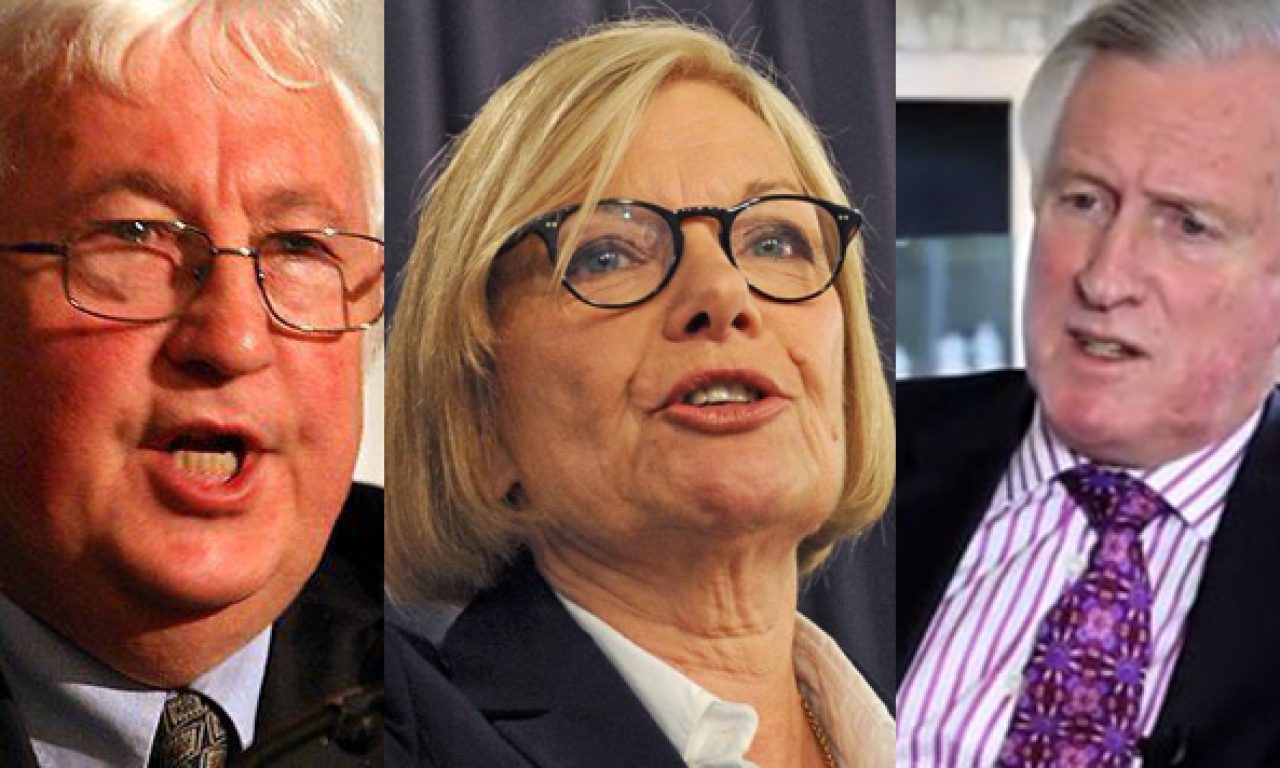It’s ‘Ground Hog Day’ for the super industry, according to Michele O’Neil, the president of the ACTU. The Coalition Government is using the same arguments that then Prime Minister Tony Abbott did in 2016, when he successfully delayed the gradual increase in the Superannuation Guarantee to 12 per cent. But this time, the speakers at an ‘Emergency Superannuation Summit’ said, an increase was more urgently required, partly due to COVID’s more harmful impact on women and partly because of young people’s losses due to the early release scheme.
The Summit, on September 28, drew together, in their arguments and spirit, former adversaries Bill Kelty and John Hewson, as well as Heather Ridout, whose background spanned both sides of the fence, researcher Emma Dawson from PerCapita, and, as a live example of the pain and worry some people are going through, Sherree Clarke, an assistant aged-care nurse in Queensland.
O’Neil said that Coalition members, including backbenchers such as Senator Andrew Bragg and MP Tim Wilson, were openly attacking the entire system and the assistant minister Senator Jane Hume initially said she was “ambivalent” about the increase, later correcting her use of the word. The “myth” being offered as the main reason there should a further delay was that businesses couldn’t afford it and it would lead to lower wages. The SG is legislated to rise by 0.5 per cent next July 1, from 9.5 per cent currently, a further 0.5 per cent a year later, and then 0.25 per cent a year until hitting the 12 per cent target.
“Wage growth has been lower since 2016 than it had been in 2014,” O’Neill said. “At the same time, we have seen company profits rise to record levels… The cost of delaying the increase will be enormous and it will only be covered by people working longer. This is why the union movement fought so hard for universal super in the first place.”
Bill Kelty, secretary of the ACTU during the 1980s and early 1990s, was the prime driver on the union’s side, negotiation with then-Treasurer Paul Keating the famous wages accord which brought about 3 per cent compulsory super for many Australian workers. This led to the growth of the industry fund phenomenon, with Garry Weaven, then assistant secretary of the ACTU, laying a lot of the ground for its growth. But it wasn’t until 1993, under Keating as Prime Minister, that Australia got almost-universal coverage through the SG.
Kelty described the time before compulsory super was a “terrible system” because the nation was ageing, super was inadequate and mainly confined to more highly paid individuals in business and government. “We recognised that we needed a generations shift with super being complemented by the age pension system and individual contributions… There would be fewer people reliant on the pension, it would improve the capital base of the country and it will alter the balance of payments from deficit to surplus. Each of these things has occurred,” he said.
During the first eight years following the SG’s introduction, wages went up 3.5 per cent, while compulsory super went to 9 per cent. A 12 per cent level was a commitment by the Government, which people had planned for and which companies had planned for. “To my knowledge not one parliamentary candidate opposed the SG going to 12 per cent,” Kelty said. “So, it was a covenant. And those most dependent on the SG tend to be the most vulnerable in society… One thing is certain: the problem of ageing is not going to go away and the economy won’t remain the same.”
John Hewson, who was the main economic advisor to John Howard when Howard was Treasurer, said that super was not a political issue. He said: “It’s about dealing with longer-term strategic challenges. It’s a commendable goal for people in retirement. It has nothing to do with short-term factors that can be used as an excuse. The Government is now trying to find any argument it can use to not do it [increase the rate]. If you take a step back you have to wonder whether they are trying to kill off super altogether.
“We know the system discriminates against women, against part-time workers, against the lower paid and is heavily skewed towards the wealthy… It was a mistake to allow access to it during the COVID crisis. The recovery from the impact of COVID will become an acid test for the Government to think longer term and to stick to the agenda.”
Heather Ridout, a former chief executive of Australian Industry Group, representing the interests of the country’s employers, and a former chair of AustralianSuper, said there were a lot of features of the Australian super system which made it a standout around the world. it currently ranked number three, behind Denmark and The Netherlands, on the Mercer annual study of global pension systems. “So, why do we keep chipping away at it?” she said. “We do have some unfinished business, such as women and super and workers in the ‘gig economy’ [mainly contractors.”]
The initial postponement of the increase, by two years, was in 2014, announced as part of Tony Abbott’s election campaign that year, and then delayed a further four years in 2016. “By delaying it in 2014 workers missed out on the run-up in share prices which followed… AustralianSuper has about $90 billion invested in Australia, representing 6-6.5 per cent of GDP, and invested in companies. We should be focused on protecting the system, not undermining it. With ageing, more people will have a type of retirement which is at the behest of politicians.”
Hewson pointed out that politicians received 15.6 per cent in super and had also rejected a pay cut for themselves despite the current climate. “This is an opportunity for leadership. It is not defensible to say that circumstances are tough. I think 15 per cent should be the minimum, but we do it in stages, after getting to 12 per cent first.” He asked what the country could do to help people who have taken their money out of super to restore their balances. “The judgements being made in the leadership of the Liberal party are very short term. This is a test of their maturity as a government… $60 billion in tax cuts are being brought forward but only about 3 per cent of that will go to the lowest-paid 50 per cent of the workforce.”
Researcher Emma Dawson said that the overwhelming benefit of a rise in SG would go to workers earning less than $75,000 a year, and most of them women. “PerCapita has done a lot of work on super,” she said. “Prior to the SG, 50 per cent of men had super and only 15 per cent of women… The recent raid on super through the early access scheme is likely to disadvantage women more than men. It is more likely to wipe out their super entirely. We have sent them back to having the same status as their grandmothers.”
Sherree Clarke, the assistant aged-car nurse from Queensland presented a stark real-life view of life for many lowly paid workers. She lives in a caravan park as she approaches retirement. She missed out on about $4,000 in super due to the Government’s previous delay. She said: “Going to 12 per cent gives me a chance of being able to stay longer [in the caravan] before joining the statistics among the homeless. I’m already classified as ‘high risk’ for homelessness.”
– G.B.


